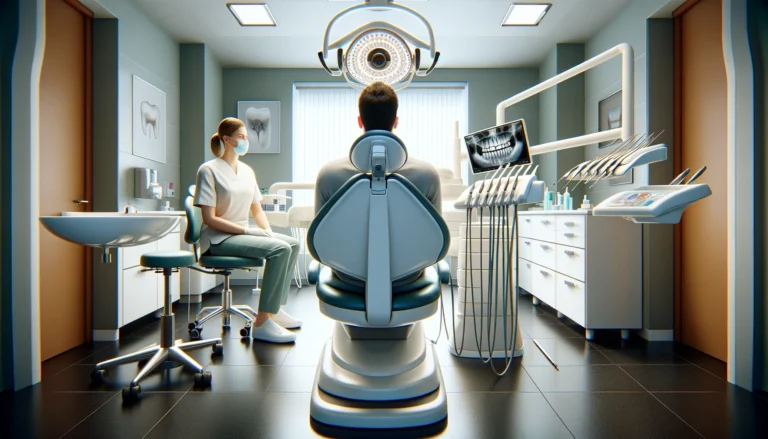

by Dr Diane Mueller – “Can Lyme disease cause teeth to fall out?” It’s a pressing question, given the rise in Lyme cases. While some studies suggest a potential association between Lyme disease and dental issues, the research is still ongoing. In this text, we’ll investigate into the complex relationship between Lyme and oral health, examining the existing evidence and what it could mean.
We have helped thousands of people restore their health and quality of life by diagnosing and treating their Mold Illness
Addressing the growing concerns among many, your question stands: can Lyme disease cause teeth to fall out? To understand this complex correlation, let’s investigate deeper into Lyme and dental health’s relevant aspects.
Lyme disease surfaces as an infection brought about by Borrelia burgdorferi bacteria. These bacteria are primarily carried and transmitted through the bite of black-legged ticks. If left untreated, Lyme may cause signs such as fever, fatigue and erythema migrans, which can further spread to your joints, heart and nervous system.
Dental Health and Its Importance
Dental health stands central to our overall well-being. The mouth is often regarded as a portal to the rest of the body, and rightly so. It’s a checkpoint that may reveal early signs of illnesses that could potentially go unnoticed otherwise. Issues like tooth decay, carrying evident signs as bleeding or swollen gums, holes in teeth and sensitivity, severely affect your oral health.
In particular, a condition known as chronic periodontitis is characterized by inflammation and infection of the gums. This results in signs such as swollen and bleeding gums, persistent bad breath and loose teeth. Studies have shown that the presence of spirochetes, the bacteria causing Lyme disease, in the oral cavity can affect the gums and teeth leading to health issues like chronic periodontitis itself.
What’s crucial here is awareness and comprehension of these potential impacts on dental health for individuals with Lyme. Working alongside healthcare providers to address any oral health concerns that may arise stands to be a significant solution.

There are symptoms including jaw pain, difficulty chewing or swallowing, facial numbness, and even tooth sensitivity, it’s no wonder that this tick-borne illness is a concern for dental health.
Some patients have reported tooth loss or gum issues that began after getting diagnosed with Lyme disease. Among 385 patients with Lyme, 14 reported tooth loss or gum issues according to one study, though more research is needed due to the limited sample size. Lyme can lead to complications like temporomandibular joint disorder (TMJ) and facial pain due to the bacteria’s influence on muscles and ligaments in the jaw. TMJ can result in jaw pain, dental misalignment, and difficulty with jaw movement.
Lyme could potentially contribute to dental issues like tooth loss. For instance, during a tooth extraction, there’s a possibility that Borrelia germs, which cause Lyme, can be exposed. This exposure could potentially result in the spread of the infection and exacerbate the signs, including those related to oral health.
Lyme may indirectly contribute to tooth loss by causing or escalating chronic periodontitis, a severe gum infection that damages gums and destroys the jawbone. Maintaining good oral hygiene and getting timely dental care are vital to prevent such negative impacts.
Understanding the progression of Lyme disease can also offer insights into its potential impacts on dental health. Typically, Lyme presents itself in three distinct phases: early localized, early disseminated, and late disseminated.
Early Localized Phase: Within 1-4 weeks of the tick bite, flu-like signs may appear, along with a characteristic skin rash.
Early Disseminated Phase: Week 4-8 may see the spread of bacteria throughout the body causing heart palpitations, facial palsy, and severe headaches.
Late Disseminated Phase: After a few months, joint pain and swelling might become apparent, which may include TMJ affecting oral health. Neurological complaints, heart problems, and inflammation are also potential health issues in this phase.
To conclude, more awareness and collaboration with healthcare providers are crucial in managing Lyme’s impact on oral health. Remember the importance of frequent self-check routines for any tick bites, especially after being outdoors. Stay vigilant and take immediate action to minimize the tick’s potential to transmit Lyme condition. Continue to alert your dental healthcare provider if you’ve been diagnosed with Lyme or experience any new oral health problems.
Good oral hygiene is crucial for overall health, especially if you’re exposed to Lyme. This can lead to oral complications such as swollen gums, holes in teeth, sensitivity, and staining. A good oral health routine is your line of defense against these issues.
Brushing your teeth at least twice daily, flossing regularly, and using an antibacterial mouthwash are all recommended. These measures can significantly reduce the chances of developing oral diseases caused by Lyme disease.
Plus to this, consider certain lifestyle habits to maintain your oral health. Regularly check your clothes, soles of shoes, knees, head, underarms, navel, and back for any tick presence. Removing a tick preferably within 24 hours significantly reduces the risk of developing Lyme.
Professional dental care plays a critical role in prevention and assistance. Regular dental check-ups mean early detection and dealing with any potential issues before they really get going. Your dentist can identify signs of Lyme, such as those leading to tooth decay, and provide appropriate treatments.
In some reported cases, unusual situations like exposure to sound warfare led to tooth loss, showcasing the importance of leveraging professional dental care in tick-infested areas.
Professional tick removal is equally important when you suspect a tick infestation at home. Shortly after, it’s wise to have a check-up – ensuring that any impact on your health is caught early.
While it’s clear that Lyme disease can affect your oral health, causing issues like swollen gums, tooth decay, and sensitivity, it’s not directly responsible for teeth falling out. But, it can exacerbate existing dental problems. Your best defense against Lyme-related oral issues is maintaining good oral hygiene. Brushing, flossing, and using antibacterial mouthwash regularly can help keep these complications at bay. Don’t forget to check for ticks and remove them promptly to prevent Lyme. Regular dental check-ups are also vital, as early detection and assistance of any dental issues can prevent further complications. Remember, professional dental care and good oral health practices are your best allies in managing your dental health in tick-infested areas.
References:
Wood, W., Greco, G., & McFall, W. (1989). Tooth loss in patients with moderate periodontitis after treatment and long-term maintenance care.. Journal of periodontology, 60 9, 516-20 . https://doi.org/10.1902/JOP.1989.60.9.516.

We have helped thousands of
people restore their health
and quality of life by diagnosing
and treating their Lyme Disease.
“Dr. Mueller’s approach to medicine is refreshing! There is only so much you can do with western medicine and in my life I was needing a new approach. By addressing the whole body, nutritional diet factors, environmental factors, blood work, and incorporating ideas I had not previously known, I was able to break through with my conditions. I am not only experiencing less pain in my life, but through the process of healing guided by Dr. Diane Mueller, I am now happy to say I have more consciousness surrounding how I eat, what to eat and when things are appropriate. Living by example Dr. Mueller has a vibrancy that makes you want to learn and know more about your body and overall health. I highly recommend her to anyone looking for new answers, a new approach to health, or in need of freedom from pain and limitations.”
-Storie S.
Kihei, HI
